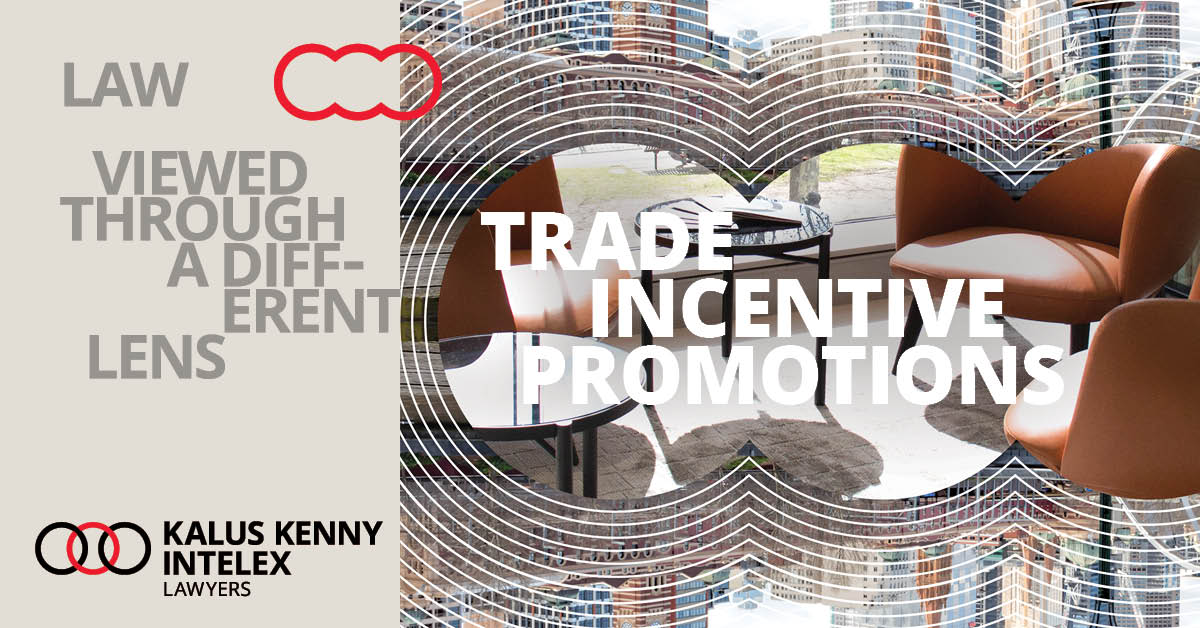Trade incentive promotions are promotions that run between one business and another, or between a business and its employees. These types of promotions are common where a business wants to increase growth or participation in certain areas. For example, encouraging staff or retailers to increase sales of a particular product, or incentivising staff to complete a survey or training.
Game of skill, game of chance or something else?
Trade incentives can come in many forms. They could be a game of skill, a game of chance or a guaranteed gift promotion. Examples include:
- game of skill: where the promoter is incentivising a retailer to sell more of a specific product compared to the same period in the previous year, and the winning store is determined by the highest percentage growth made during the promotion period.
- game of skill: where retailers are encouraged to set up a promotional display in store. As part of the promotion, they then must submit a photo of the promotion, with the display judged to be the best by a promoter winning a prize.
- game of chance: where retailers are encouraged to buy specific products from the promoter, and for each product purchased during the promotion period, they receive entries into a draw.
- guaranteed gift: where staff are encouraged to participate in staff training, and on completion will receive a gift in return.
Trade incentives can also run alongside consumer promotions, where staff may be encouraged to sell products that are involved in a consumer promotion, and in return for doing so, they are entered into a draw for a prize. Another common example is where a person is drawn as a winner in a consumer promotion and the retailer that sold the particular product to the winning consumer will also win a prize.
Permit requirements
Although trade incentive promotions may be “internal” only, they are still subject to the same permit thresholds and requirements as consumer promotions if it is a game of chance. This means that, depending on the total prize pool, permits may be required.
Most commonly we see trade incentives ran as games of skill because there are no permit requirements, which makes them much faster and cheaper to implement. However, if you are running a game of skill, it is important to ensure that all aspects of your promotion are skill based to avoid permit requirements or falling into game of chance territory. For example, if you are required to have a tie breaker to assist with determining a winner, it is important that the tie breaker is not considered ‘chance’.
Examples of skill-based tie breakers:
- where winners were determined by the increase in sales in a certain period and two stores (or staff members) had the same percentage, the tie breaker may be the store or staff member that had the highest overall percentage in sales would be the winner; or
- a ‘25 words or less’ question.
Examples of chance-based tie breakers:
- a draw; or
- a flip of a coin.
Fringe Benefits Tax
Where a promotion is run between a business and its staff, the business may also be required to pay fringe benefits tax on top of the prize awarded to a staff member.
Fringe benefits tax (FBT) is a tax paid by employers on certain benefits that they provide to their employees, or to the family or other associates of an employee. FBT is separate to income tax and is calculated on the taxable value of the fringe benefit.
FBT is the employer’s responsibility to pay, so if you’re running a promotion for staff, make sure you understand any FBT requirements that awarding prizes may attract.
Other considerations
When considering a trade incentive, you should also keep in mind:
- terms and conditions are always recommended to detail the promotion specifics, and to comply with trade promotion regulations;
- who will the prize go to? When promotions are running in retailers, it’s important to be clear in your terms and conditions who will be receiving the prize, e.g. the principal of the retailer, the store manager, or a specific staff member; and
- do you wish to limit which stores or staff members (e.g. only store managers) can enter the promotion?
Do you have any questions about trade incentives or trade promotions in general? Reach out to our Commercial Team.




